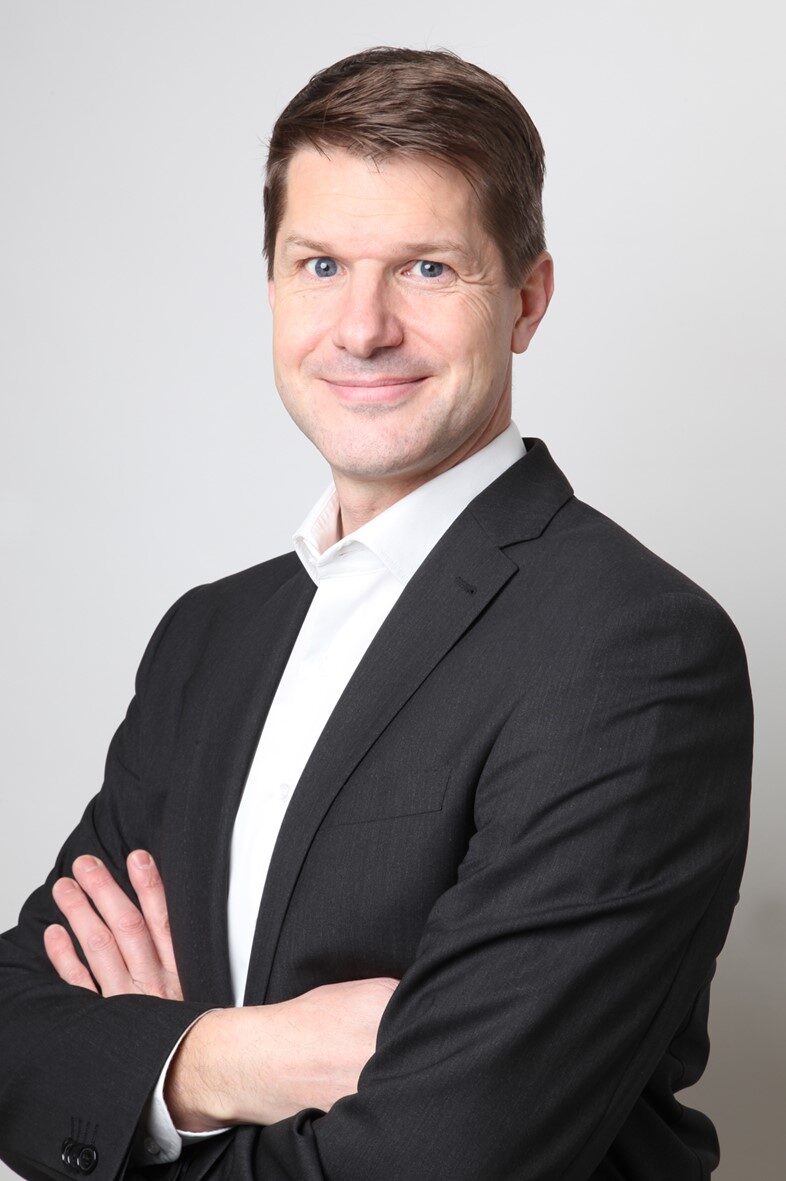Felix Mundwiler is Head of Corporate Citizenship at Credit Suisse in Switzerland. At the heart of our conversation is the current and future importance of corporate volunteering.


An interview with Felix Mundwiler, Head of Corporate Citizenship, Credit Suisse, Switzerland, about the importance of corporate volunteering and the challenges of this time. Reliable partnerships and cooperation are needed right now. This is in line with the UN agenda and its sustainability goals. This blog post is based on the United Nations Sustainable Development Goal No. 17.

Corona has given us much more attention to the question of what holds the world together. When the usual and existing things are suddenly called into question, there is potential for creativity and a reorientation of values. Matthias Horx's German Future Institute talks about creating identities in connection with coping with a crisis and its possibilities. In the new era of entrepreneurship, this identity will focus on the welfare of the whole.
According to Corona, the Sustainable Development Goals (SDGs) defined by the United Nations therefore have, I think, a real chance of gaining even greater significance. Solidarity, neighborhood aid and mutual support in one's own circle of family and friends have shown a basic human understanding and need: To work for the good.
It is therefore an ideal time to devote itself to the institutionalized good cause, which is located at the company level. Corporate volunteering includes voluntary work, such as team assignments on campaign days, pro bono services provided by employees who contribute their expertise to non-profit projects, or so-called sideways experiences to acquire new skills in other functions. The objectives for companies are multifaceted and important both internally and externally: It is about team building and personnel development, about the attractiveness as an employer, which is promoted by this, as well as about social, social or environmental responsibilities.
In Switzerland, Credit Suisse is directly linked to Corporate Volunteering. The bank has been working worldwide for many years with a broad-based program of different application options and is a pioneer in Switzerland in company voluntary work.
Felix Mundwiler is Head of Corporate Citizenship at Credit Suisse in Switzerland. At the heart of our conversation is the current and future importance of corporate volunteering.

Communications Circle: Is there currently an even greater desire among CS employees to get involved in society? How did you organize yourself during times of increased remote working and given the prevention measures in place?
Felix Mundwiler: The corona virus pandemic has brought to a standstill the voluntary work in direct contact with the representatives and beneficiaries of our partner organizations. This is very difficult for those partners who rely on volunteers and now have to make other efforts to pursue their missions.
We have tried to help more with financial contributions – we also feel a huge need of our employees to help, especially now for the year-end season. At the same time, together with our partners, we have also seized opportunities for the future, especially in the field of digitization. Virtual volunteering can be attractive and useful in mentoring and coaching, in school lessons or for organizational tasks in favor of a partner organization, e. g. in the application training courses of Pro Juventute, through the learning videos that we have produced with our partner YES around financial competence or in a business modeling project with a partner.
CC: What are your responsibilities at Credit Suisse?
Mundwiler: Our division is called Corporate Citizenship & Foundations. In addition to volunteering, it covers a wide range of development tasks within the framework of non-profit partnerships – in line with the SDG No. (Partnerships). As already mentioned, this includes the support of the partners in terms of content and structure, as well as the development of the sector in general in close cooperation with the Credit Suisse Foundation.
Volunteering focuses on assignments in the areas of financial and future competencies, i.e., STEM subjects, employment topics, economic education, dealing with money as well as soft skills such as mindfulness or creativity. To this end, we naturally offer a wide range of social and environmental interventions, for example in biodiversity, environmental infrastructure, integration, and poverty reduction.
CC: Credit Suisse combines its sustainability report with the UN Sustainable Development Goals (SDGs). Which of the sustainability goals are covered by the corporate volunteering activities?
We probably have a link in our portfolio for each of the SDG goals.
Felix Mundwiler
Mundwiler: This is difficult to say because the transitions are often fluid. We probably have a link in our portfolio for each of the SDG goals, whether in our local or global programs. In our Corporate Citizenship area, the focus is on the social goals relating to education, the world of work, equality, and individual well-being. And, as I said, above all else are the partnerships that form the core of our activities.
CC: The pandemic has probably prompted all of us to think about it. The meaningfulness of one's own actions and that of the companies is questioned even more. How do you assess the development and future importance of institutionalized volunteering?
The next generation is increasingly engaged in charitable activities and less in the private association, at best less informally.
Felix Mundwiler
Mundwiler: The recently published Volunteer Monitor 2020 shows that non-profit organizations tend to be able to report increasing numbers of volunteers. This probably goes hand in hand with demography, which means that the next generation is increasingly engaged in charitable activities and less in the private association, at best also less informally. This is a clear sign of corporate volunteering. Many employees will always do their voluntary work, including board of trustees, in private, and not through the company's services. In this respect, we are very different from other regions, especially the United States. At the same time, however, the younger generation of employees, who consider the possibility of social commitment as a prerequisite or at least a strong incentive for employment, is coming into the company. This is a mission and motivation for us to create appropriate offers that are closely linked to the company's values and strategy.
CC: Is there a commitment that is very close to your personal heart?
Mundwiler: We work with so many great, dedicated and creative partner organizations, each of which means something to me, in their own way. I am particularly impressed by those organizations that make the most of this crisis and seize diverse opportunities to develop. I personally have the most insight into the partnerships with Pro Juventute, Wirtschaftsbildung.ch, the Swiss Red Cross, the Zurich Children's Hospital, the SGG page change program and YES. When I look at the work of my entire team, I am very proud of the trusting and friendly relationships with dozens of organizations that we have built over the years.
CC: What recommendation do you give to those companies that want to develop corporate volunteering?
Effect and social added value emerge over the years.
Felix Mundwiler
Mundwiler: First: Create internal links, both thematically and organizationally. Social commitment must be consistent with the values and content priorities of the company and must be aimed at generating benefits for society, employees, and the company.
Second: Seek long-term partnerships with multi-level collaboration. Impact and social added value emerge over the years. Single-use operations often fail to work, even in internal perception.
Third: Respond to the needs of employees. They usually have clear ideas about which topics they want to engage in, in which region, in which language, in which context, etc.
CC: What role does Corporate Communications need to play?
Mundwiler: Internal and external communication is of course extremely important in order to demonstrate the company's commitment and thus to convey the values to all stakeholders, especially to employees, but also to customers, the public sector, rating agencies, etc. This will increase in importance, and we see many indications of this in today's world. Integrated communication, including business and responsibility topics, creates transparency and trust in the company.
Felix Mundwiler is Head of Corporate Citizenship Switzerland at Credit Suisse. He leads a team of four people responsible for charitable partnerships and the social commitment of employees in Switzerland.
Felix grew up in the Basel region, studied motion science at the University of Basel and later completed an MBA with a focus on change management and corporate responsibility at the HSO/European Business School. His career led him through sports marketing and two years in Australia in community engagement and social policy development to the communications industry. Most recently, he worked as a consultant in a PR agency, and in 2016 he moved to Credit Suisse.
In his private life, Felix is a member of the Board of Directors of the AFS Intercultural Programs Switzerland. He is 49 and lives with his family in Zurich.
Beyond its core business, Credit Suisse contributes to meeting social challenges in the regions in which it operates. Together with selected partner organizations, the bank supports projects worldwide that aim to achieve a positive economic or social impact in accordance with the Sustainable Development Goals of the United Nations.
With the topic of Future Skills, the bank is committed to projects that equip young people with the skills to develop their full potential, regardless of their socio-economic background. It also supports programs in the fields of financial science and debt prevention. To this end, it enables its employees to volunteer up to four working days per year and makes its network and expertise available as well as financial resources. In Switzerland, around 4.000 employees are involved in over 5.000 assignments each year and volunteer 50.000 hours for 70 non-profit partner organizations.

When interrelationships are questioned and understood, this is the basis for responsible action. The period under the coronavirus pandemic has certainly revealed at least two positive findings in addition to the negative events. It has heightened awareness of global connectedness, and thus the context of global value chains. This gives us hope that quality will become the focus of the primary assessment criteria, along with the cycle of their creation, use and disposal processes in the sense of the Circle Economy.
The seventeen Sustainable Development Goals (SDGs) of the United Nations, which were defined for 2016 to 2030, have a strong regional and local dimension with the aim of reaching and involving people more directly.
For the defined sustainability goals to be successfully implemented, well-functioning partnerships at global, regional, national and local levels are required. Ideally, this follows the same principles and values as well as vision and goals, with people and the planet at the center of everything.
Further information on the United Nations Sustainable Development Goals
Click here for more information on "Creating Shared Value" in general and specifically on SDG No. 4.

